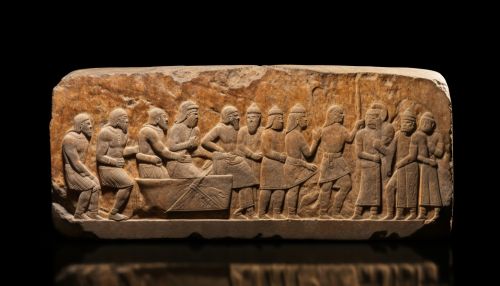Epic of Gilgamesh
Introduction
The Epic of Gilgamesh is one of the earliest known pieces of literature in human history. Originating from ancient Mesopotamia, it is a poetic narrative that recounts the adventures of the historical King Gilgamesh of Uruk.


Historical Context
The Epic of Gilgamesh was written in the Cuneiform script, one of the earliest systems of writing, on clay tablets. The epic is believed to have been composed in the late third millennium BCE, although the earliest surviving fragments date from the mid-second millennium BCE. The story was popular across the ancient Near East, with versions found in the archives of Hattusa, Amarna, and Ugarit.
Plot Summary
The epic begins with a prologue that introduces Gilgamesh as two-thirds god and one-third human, the builder of the great city of Uruk, and a wise and powerful king. However, his subjects complain to the gods about his oppressive behavior. In response, the gods create a wild man named Enkidu to be Gilgamesh's equal and distract him.
Characters
The main characters in the Epic of Gilgamesh are Gilgamesh himself and Enkidu. Other significant characters include Ishtar, the goddess of love and war, and Utnapishtim, a man who was granted immortality by the gods.
Themes
The Epic of Gilgamesh explores several themes, including friendship, mortality, and the quest for immortality. The friendship between Gilgamesh and Enkidu is one of the most significant aspects of the epic. Their relationship changes Gilgamesh from a tyrant into a more compassionate leader.
Influence and Legacy
The Epic of Gilgamesh has had a profound influence on later literature and religious texts, including the Bible and Homer's epics. The story of the Great Flood, as told by Utnapishtim in the Epic of Gilgamesh, has particularly strong parallels with the biblical story of Noah.
